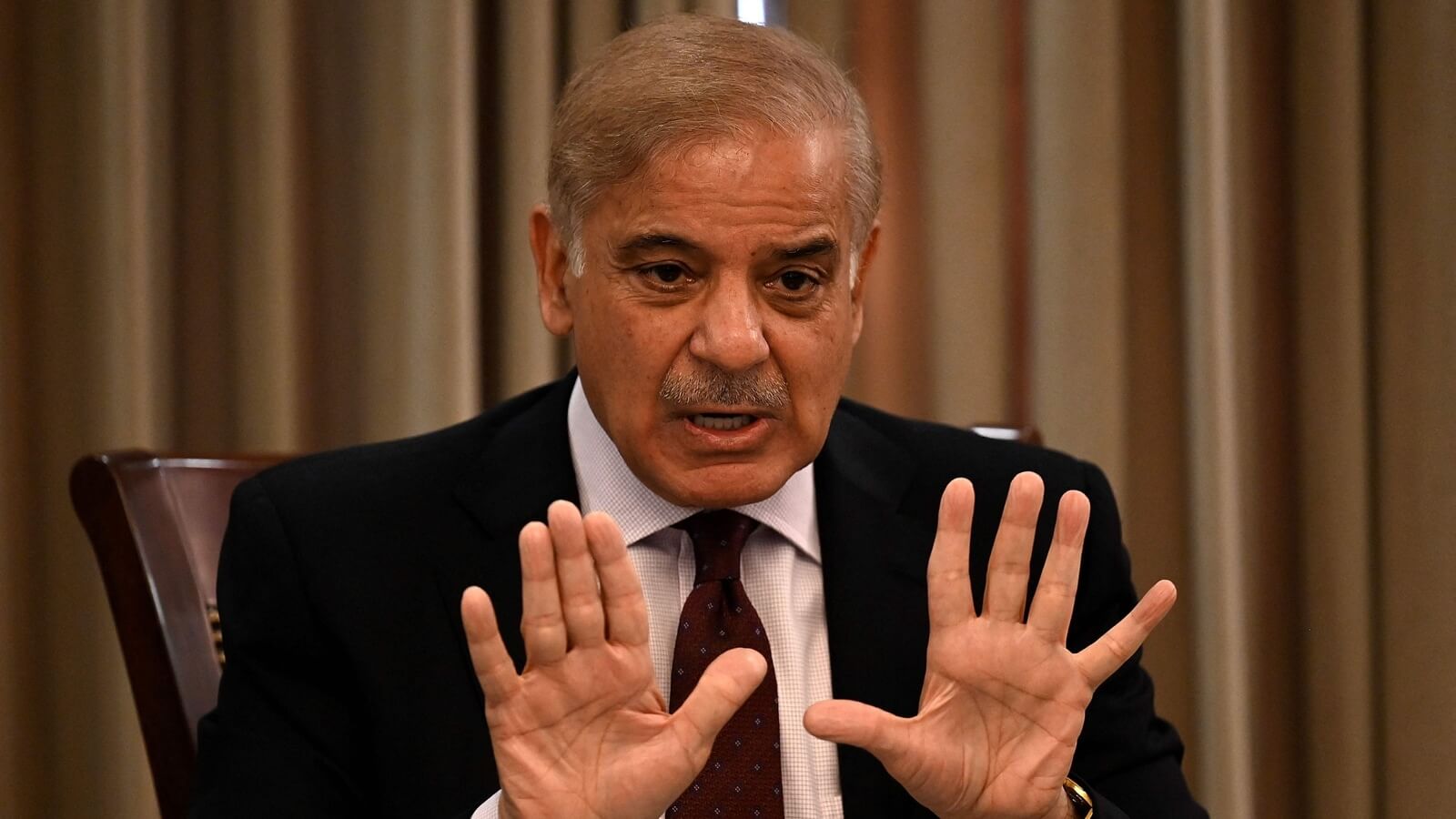Speaking about ongoing floods that have killed upwards of 1,400 people, including 400 children, Pakistani Prime Minister (PM) Shehbaz Sharif stressed during his address at the United Nations General Assembly (UNGA) on Friday that it is an “undeniable” and “inconvenient truth” that the calamity was not “triggered” by anything the country has done.
Sharif noted that the floods have pushed one-third of the country under water and given rise to threats such as disease and malnutrition and argued that the “dual costs” of “global inaction and climate injustice” are crippling Pakistan’s “treasury and people.” In this regard, Sharif said that the floods are the most “stark and devastating” example of the impact of climate change, warning that Pakistan is not and would not be alone in facing such disasters.
In our meetings with a wide array of global leaders & other stakeholders during SCO & UNGA, my team and I made an earnest effort to present Pakistan as a credible partner ready to do business with the world. The damage inflicted on our foreign policy needed a healing touch.
— Shehbaz Sharif (@CMShehbaz) September 25, 2022
Reiterating UN Secretary-General António Guterres’ claim, the PM said climate change “hotspots” like Pakistan feature in the list of the top ten countries that are most vulnerable to climate change despite having contributed to less than 1% of global greenhouse gas emissions. “Nature has unleashed her fury on Pakistan without looking at [its] carbon footprint, which is next to nothing,” he remarked.
In this respect, PM Sharif noted that it is “entirely reasonable” for Islamabad to expect some remuneration for the loss and damage, along with assistance in “building back better with resilience.”
The Pakistani leader also raised concern about the “next stage” of challenges that will begin once the international attention on the floods shifts to other international conflicts like the Ukraine war. “Will we be left alone to cope with a crisis we did not create?” he questioned.
Nevertheless, he highlighted that authorities had deployed “all available resources,” including development funds, for relief efforts. He added that while this will be a “long haul,” Pakistanis’ “exceptional” resilience will help rebuild the country.|
In line with Pakistan’s repeated attacks on India, Sharif also spoke of India’s “illegal and unilateral” actions in Jammu and Kashmir (J&K), particularly India's decision to revoke J&K’s special status in August 2019. He claimed that India is repressing Kashmiris with growing “scale and intensity” by increasing military deployment, extrajudicial killings, incarceration, custodial torture and death, indiscriminate use of force, deliberate targeting of Kashmiri youth with pellet guns, and “collective punishments” imposed on entire communities.
Watch: Indian diplomat @Mijito_C slams Pakistan PM Shehbaz Sharif at UNGA; Highlights Islamabad's support to terrorism, situation of Pak. minorities pic.twitter.com/4PGPT2xw2V
— Sidhant Sibal (@sidhant) September 24, 2022
Sharif also accused India of changing the demographic composition in J&K by providing Hindu-majority regions with more electoral powers and issuing “domicile certificates” to non-Kashmiris. In this regard, he reassured the Kashmiri people of Pakistan’s support for their cause and their fight for self-determination. He further stressed the importance of resolving the issue to achieve regional peace and stability in South Asia.
Additionally, Sharif condemned the “global phenomenon” of Islamophobia that has ravaged the world since the 9/11 attacks in the United States (US). In this regard, he alleged that India officially sponsored the “campaign of oppression” against its 200 million Muslims with hijab bans and attacks on mosques.
Sharif also discussed the ongoing Afghan crisis, which has left over 30 million Afghans stuck in a dysfunctional economy with crippled banking systems. He asserted that Pakistan wishes to see an Afghanistan that has secured “peace with itself and the world,” and stressed that his government is working to secure the rights and liberties of Afghan women.
Pakistan PM Shehbaz Sharif & UNGA address
— Sidhant Sibal (@sidhant) September 23, 2022
Number of times mentioned:
Kashmir: 12+
India: 9+
Afghanistan: 9
Climate: 7
Islam: 4
Palestinian: 3
Floods: 2
Hindu: 2
Israel: 1 https://t.co/1yuRQyZ9Q8
The Pakistani PM highlighted that isolating the Taliban could worsen the Afghan people’s suffering and called for “constructive engagement and economic support.” He added, “We must avoid another civil war, rising terrorism, drug trafficking or new refugees.”
In this regard, he urged countries to respond positively to Guterres’ call for $4.2 billion in aid to Afghanistan. Furthermore, he emphasised that it is necessary to ensure that terrorist organisations do not use Afghan soil to orchestrate violent activities across the globe, which requires the support of the Taliban’s interim government. He went on to condemn terrorism, which he said is not based on any religion but fuelled by “poverty, deprivation, injustice, and ignorance.”
Thereafter, he raised concern about the crises in Syria, Yemen, and Israel.
In conclusion, PM Sharif spoke of the need to reform the UNGA and expand the UN Security Council’s (UNSC) membership. He said, however, that, “adding new permanent members will paralyse the Council’s decision-making, enlarge its representational deficit, and create new centres of privilege in violation of the principle of sovereign equality of member states,” perhaps to undermine India’s bid for permanent membership. Sharif instead suggested the addition of 11 new non-permanent members to make the grouping more representative and democratic.

